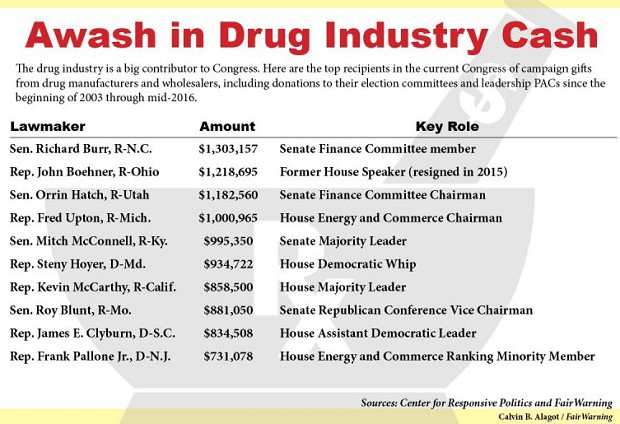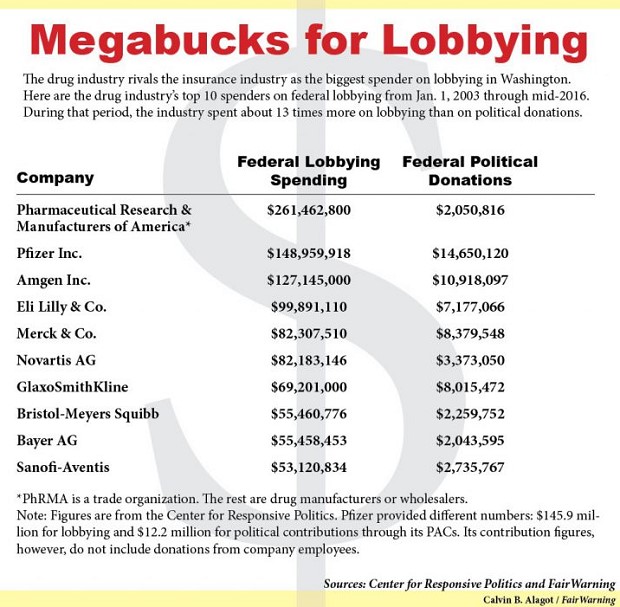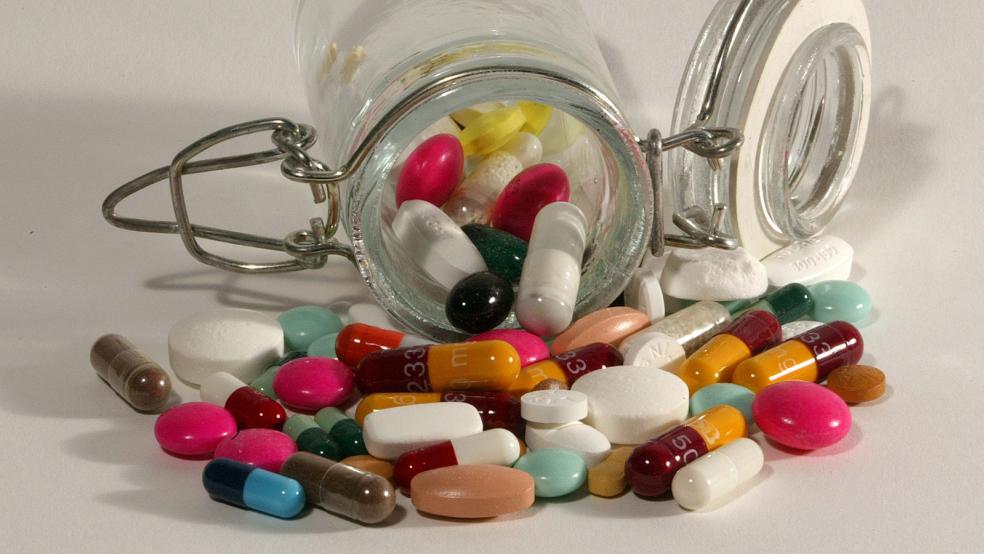For nearly a decade, veteran Democratic Rep. Peter Welch of Vermont has been waging a lonely battle to empower Medicare officials to negotiate the price of prescription drugs, just as Medicaid, the Veterans’ Administration and other government health care providers are entitled to do.
When Congress enacted the Medicare Part D subsidized prescription drug program for seniors in 2003, the drug industry secured an amendment that barred the federal government from negotiating rebates or lower drug prices for Medicare beneficiaries – a sweetheart deal that subsequently provided drug manufacturers with many billions of dollars in extra profits.
Welch, a liberal Democrat, condemned the restrictive policy as the ultimate in “crony capitalism” and sponsored or co-sponsored at least six bills to allow drug price negotiations.
Related: Clinton Calls for Powerful New Panel to Crack Down on Drug Price-Gouging
But a well-financed drug industry thwarted Welch and his allies at every turn, and the proposed legislation repeatedly was bottled up in the House Energy and Commerce Committee, or simply ignored. He concluded that big-money lobbying efforts and generous campaign contributions to key Republican and Democratic lawmakers effectively blocked his legislation, even as many consumers and policy advocacy groups clamored for ways to control soaring prescription drug prices.
“It truly is exhibit A in the intersection between crony capitalism and big money in politics,” Welch said in an interview on Thursday. “The whole essence of a free market is that willing buyers and willing sellers can negotiate prices and reach a market price … How in the world can one explain that the government actually passed a law saying that you can’t negotiate prices?”
According to Welch and political watchdog groups, the answer is fairly simple. The pharmaceutical industry spent unprecedented sums on lobbying and campaign contributions to get the prohibition on price negotiations into the original legislation and to keep it there, despite the best efforts of Welch and others to eliminate the provision.
An analysis jointly published this week by the Center for Responsive Politics and FairWarning, a non-profit news organization, highlights the political clout exerted by the Pharmaceutical Research and Manufacturers of America (PhRMA), a major industry group, and some of the largest U.S. drug companies.
Related: Two Big Reasons Prescription Drug Prices Are So Much Higher in the US
Since early 2003, the drug manufacturing industry spent more than $1.9 billion on lobbying members of Congress on Medicare Part D and other issues important to the industry. In just 2015 and the first half of this year, the industry’s lobbying bill was equivalent to spending $468,108 on every member of Congress, according to the Center for Responsive Politics.
Since January 2003, drug manufacturers and wholesalers have given $147.5 million in federal contributions to congressional and presidential candidates and super PACs, according to the analysis. Of that total, 62 percent was earmarked for Republican or conservative causes and the rest went to Democrats.
Four current or former members of Congress received totals in excess of $1 million – including Sen. Richard Burr (R-NC) who picked up $1.3 million, former House Speaker John Boehner (R-OH), with $1.2 million, Sen. Orrin Hatch (R-UT), chair of the Senate Finance Committee, with $1.1 million, and Rep. Fred Upton (R-MI)., the chair of the House Energy and Commerce Committee, with $1 million.

The legislative ban on government price bargaining, even as prescription drug costs steadily climbed over the years, was justified by the industry and other supporters on free market grounds. They also insisted that the billions of dollars in windfall profits were needed for research and innovation in bringing out new and more effective drugs. Medicare dwarfs all other government agencies and programs in its purchase of prescription drugs.
A House Oversight and Government Reform study previously estimated that Medicare officials could have saved taxpayers as much as $156 billion over the past decade had they been able to negotiate the price of drugs they purchased lower, according to Welch. And because of its negotiating power, the Veterans Administration on average can purchase prescription drugs for little more than half the price charged to Medicare.
Related: The Feds Finally Make a Move on Soaring Drug Prices
“Whether or not the Part D legislation was a big gift to Big PhRMA, there’s no denying that PhRMA spends far more on federal lobbying than any other industry, and enormous sums on campaign contributions to members of Congress,” Sheila Krumholz, executive director of the Center for Responsive Politics, said in an interview today. “The question isn’t whether the billions spent on lobbying and campaign donations influenced policy, but how much.”
“Corporations are duty-bound to return profits to shareholders and, in the grand scheme of things, these huge sums are a pittance compared to the rewards they can anticipate,” Krumholz added.
Officials at PhRMA declined today to discuss their lobbying or campaign funding strategy or to confirm how much the industry has poured into efforts to preserve the prohibition on Medicare drug price negotiating. However, they noted that private health insurers operating through Medicare are still free under the law to seek lower prices for beneficiaries if they choose, and have secured rebates averaging around 35 percent on brand medicines, as was indicated in an IMS Health study released last week.
“Significant price negotiation already occurs within the Medicare prescription drug program, Allyson Funk, a senior spokesperson for PhRMA, said today in a statement. “Large, powerful purchasers negotiate discounts and rebates directly with manufacturers, saving money for both beneficiaries and taxpayers. The Congressional Budget Office has repeatedly said that the Secretary of Health and Human Services would not be able to negotiate lower prices than already exist without restricting access to medicines for beneficiaries.”
Related: Extreme Rise in Some Drug Prices Reaches a Tipping Point
However, Welch questioned the industry’s arguments and has called for more transparency on the issue – including figures on how much of the drug industry’s profits resulting from the ban on government negotiating actually is plowed back into research and development.
Welch, an attorney and ally of Sen. Bernie Sanders of Vermont, was first elected to Congress in 2006 and is a highly regarded House Democratic strategist on energy and health care issues.
“This prohibition is having a brutal impact on consumers with higher co-payments and deductibles, on taxpayers, and it also spills over into punishing premiums on employers who are buying health care for their employees,” Welch said. “Even Donald Trump is for price negotiations because he gets it that the market is broken. So how do the drug companies do this? Obviously their influence in Congress was immense, where they got this upside-down law passed, giving them not only an exemption from the normal competitive market forces but a sweetheart deal that essentially means they name a price and taxpayers pay it.”






